Danube Cycle Plans - CITYCHANGERS 2030. HOW TO MANAGE THE TRANSFORMATION TOWARDS SUSTAINABLE MOBILITY
18-05-2022
The number of cars is increasing dramatically, with a 35% increase over the last 10 years alone. But even more dramatic is the increase in people choosing the bicycle for travel. More than a hundred experts came to the CityChangers 2030 conference, which took place in the Czech city of Jihlava on 17-18 May 2022, to try to find a recipe for dense traffic.
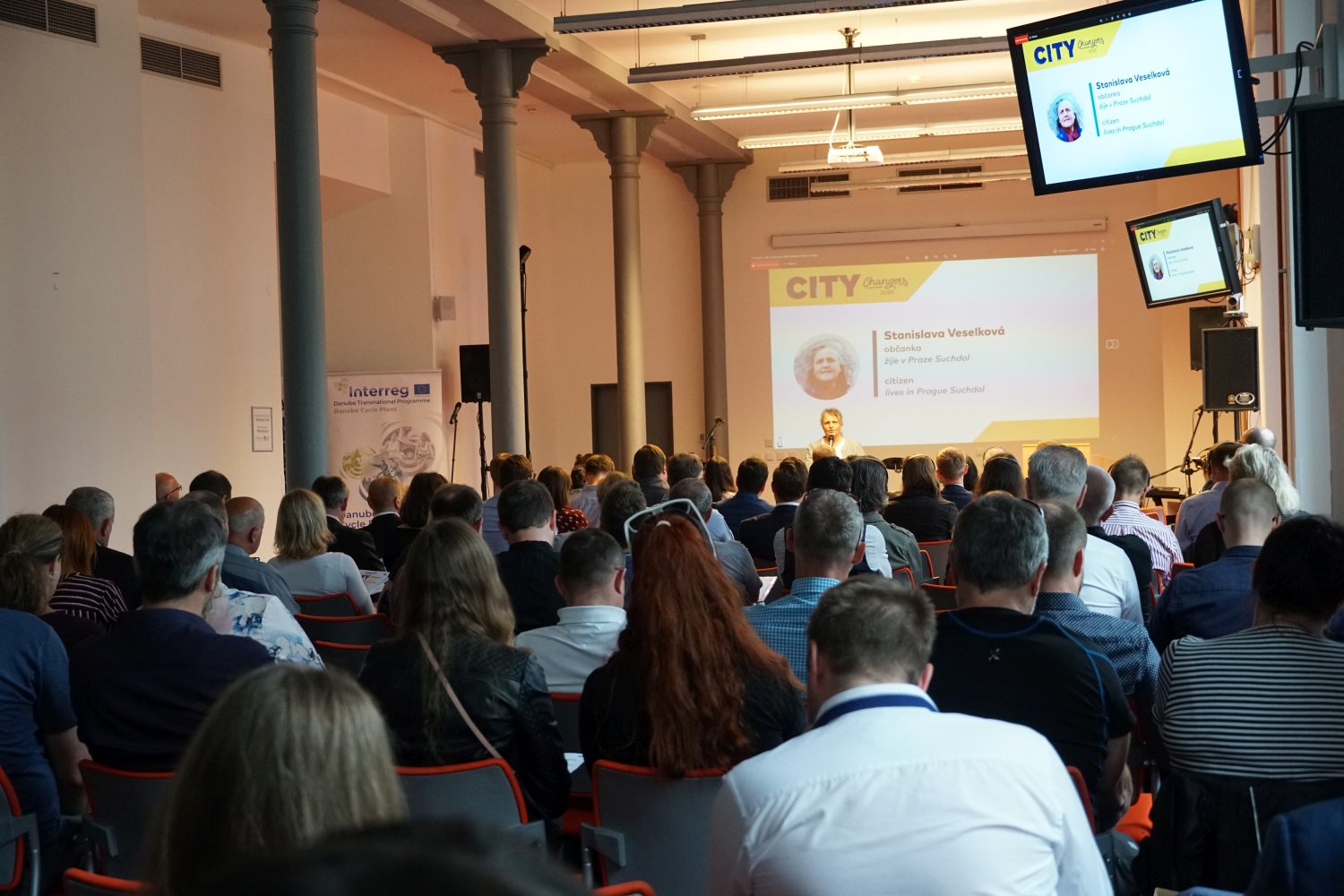
The conference was attended by around 130 participants, with hundreds more following the event online. Photo: Jana Vybiralova
The conference was a gathering of all those working for transport improvements, including the promotion of active mobility. This event was organized by the Partnership for Urban Mobility and the city of Jihlava as part of two projects from the Danube Transnational Programme – SABRINA and Danube Cycle Plans.
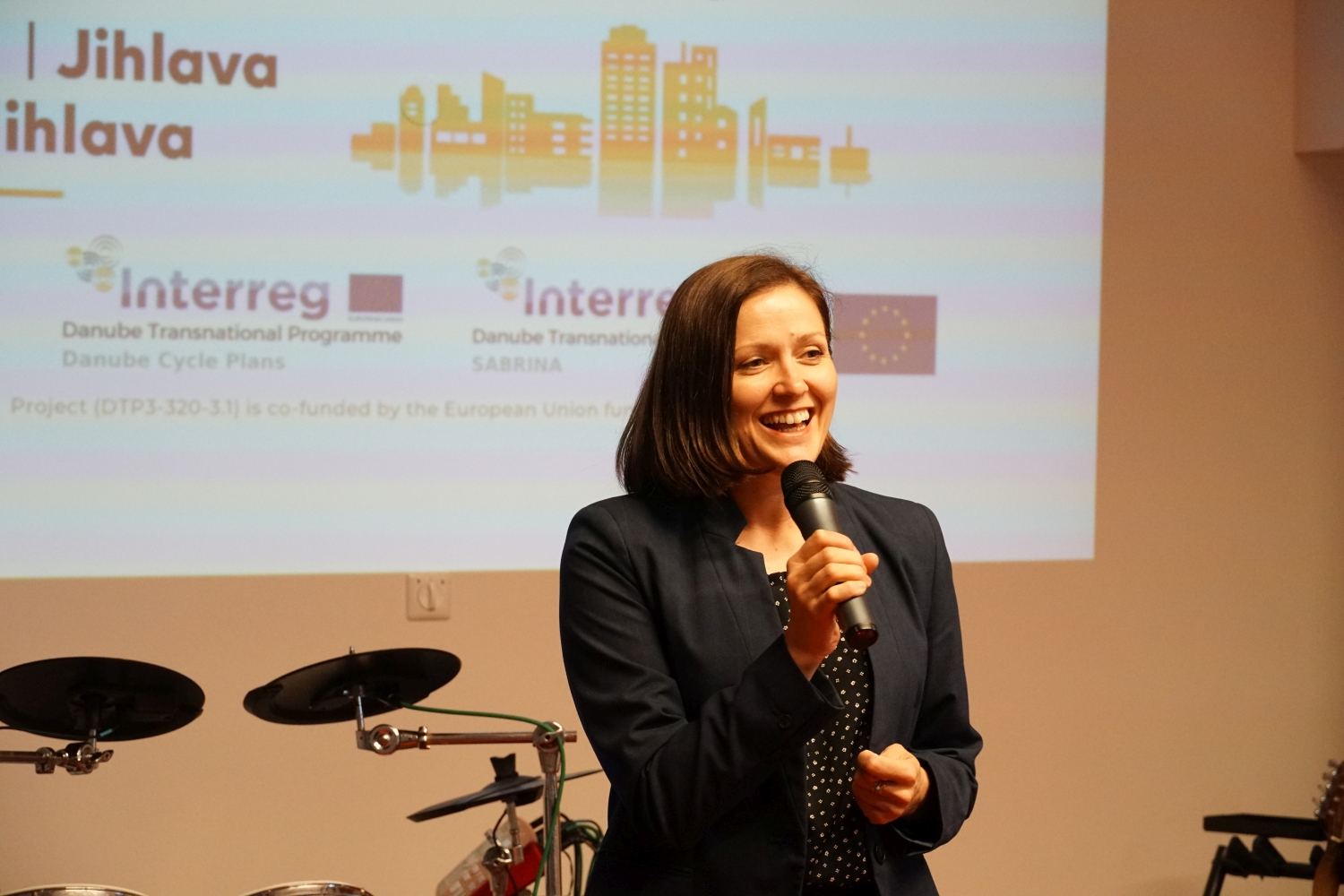
Karolina Koubova, Mayor of the City of Jihlava. Photo: Jana Vybiralova
The event was held exactly one year after the Czech Republic joined the international commitment of the Vienna Declaration, adopted at the Fifth High-level Ministerial Meeting on Transport, Health and Environment in Vienna May 2021 in the frame of the Transport Health Environment Pan European Programme (THE PEP). This Ministerial Meeting brought together 46 ministers and state secretaries and representatives of 41 countries in the pan-European region, incl. the Czech Republic, on 17-18 May 2021. Ministers and representatives of the European countries also adopted the Pan-European Masterplan for Cycling Promotion (PEMP), the first-ever strategic document on cycling officially adopted at the international level. The document which will become a fundamental guide for the development of active mobility across Europe was developed under the umbrella of the Pan-European Programme for Transport, Health and Environment (THE PEP) as a joint initiative of the United Nations Economic Commission for Europe (UNECE) and the World Health Organisation (WHO).
„The first pan-European Master Plan for Cycling Promotion is a key achievement for promoting active mobility – cycling and walking – not only in cities but also on national and European level,“ said Robert Thaler from the Austrian Ministry of Climate Action, Environment, Energy, Mobility, Innovation and Technology who is also Vice Chairman of THE PEP (Transport Health Environment Pan European Programme). As he further stated, The Transport Health Environment Pan European Programme THE PEP and its Vienna Ministerial Declaration „Building forward better by transforming to new, clean, safe, healthy and inclusive mobility and transport“ are essential for achieving green and healthy mobility. Robert Thaler also gave an overview about the klimaaktiv mobil programme in Austria which is also an European role model for an effective and successful national initiative for supporting cities, companies, tourism, schools and youth to implement climate friendly mobility. “Looking forward to strengthen the good cooperation between the Czech Republic and Austria for boosting active mobility in Europe,” concluded Robert Thaler in his keynote speech.
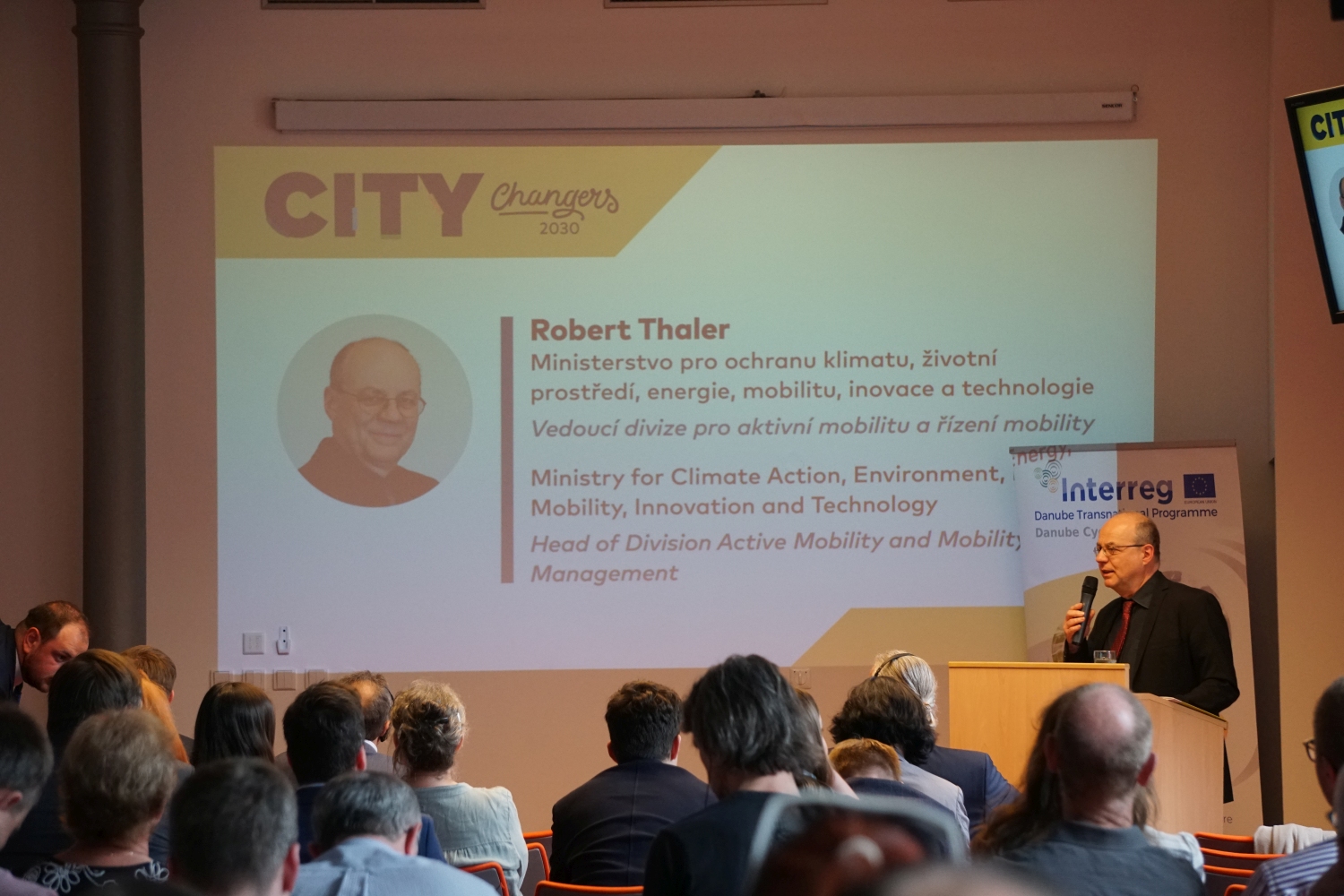
Robert Thaler, Vice Chairman of the Transport Health Environment Pan European Programme THE PEP and Head of Division Active Mobility and Mobility Management, Ministry for Climate Action, Environment, Energy, Mobility, Innovation and Technology of Austria. Photo: Jana Vybiralova
"We support the ideas of the Vienna Declaration, which we as the Czech Republic have adopted," added Jaroslav Vymazal, chairman of the organizing association Partnership for Urban Mobility and Councillor for Transport of Jihlava City.
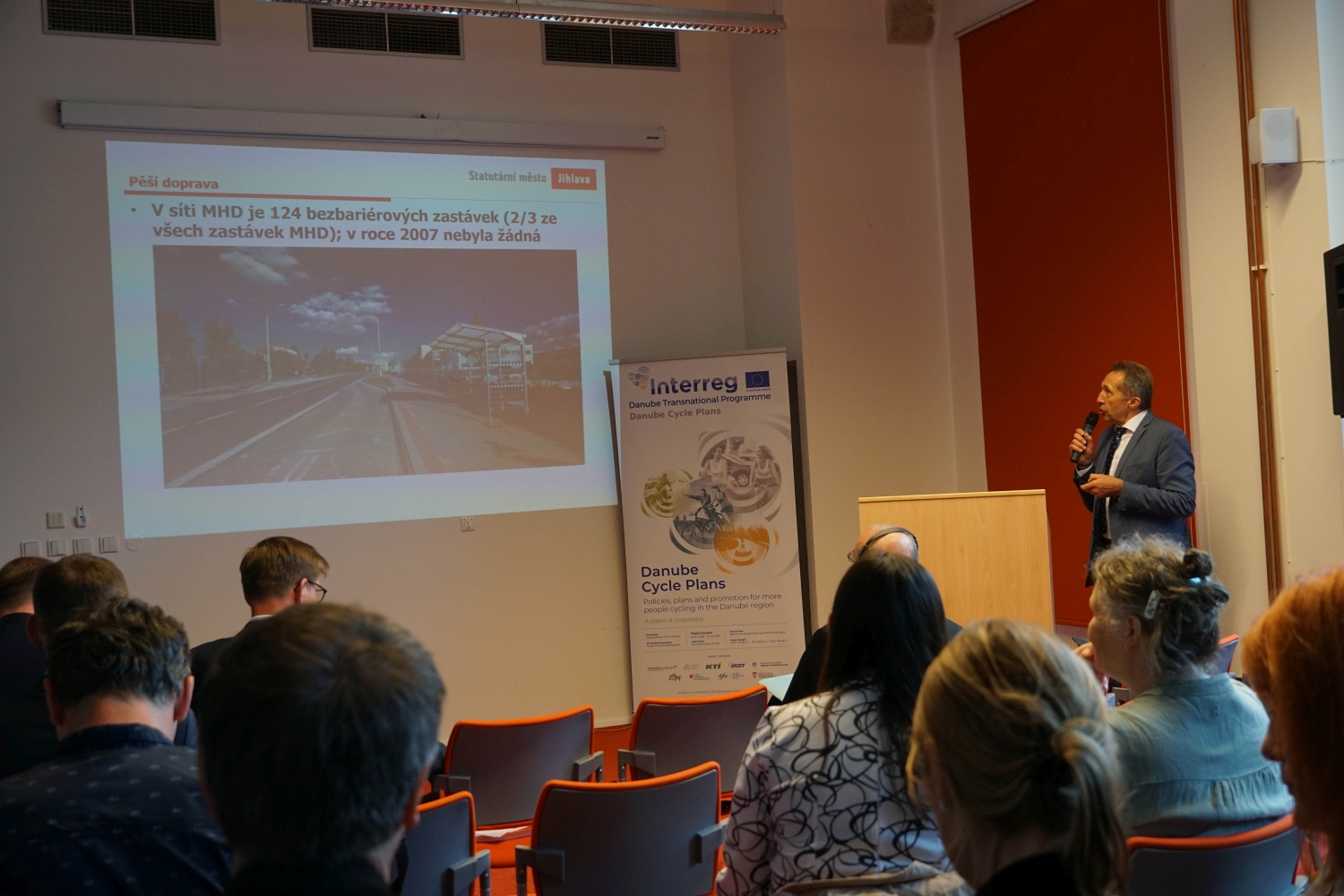
Jaroslav Vymazal, chairman of the organizing association Partnership for Urban Mobility and City Councillor for Transport, City of Jihlava. Photo: Jana Vybiralova
The conference was attended by the representatives of the key stakeholders such as municipalities, regions, and of course ministries. "Cycling and walking play an indispensable role in sustainable urban and suburban mobility. I want to pay even more attention to this active mobility because it will play an increasingly important role, especially in cities. Reducing distances in transport must be worked for," said Transport Minister of the Czech Republic Martin Kupka who also spoke at the conference.
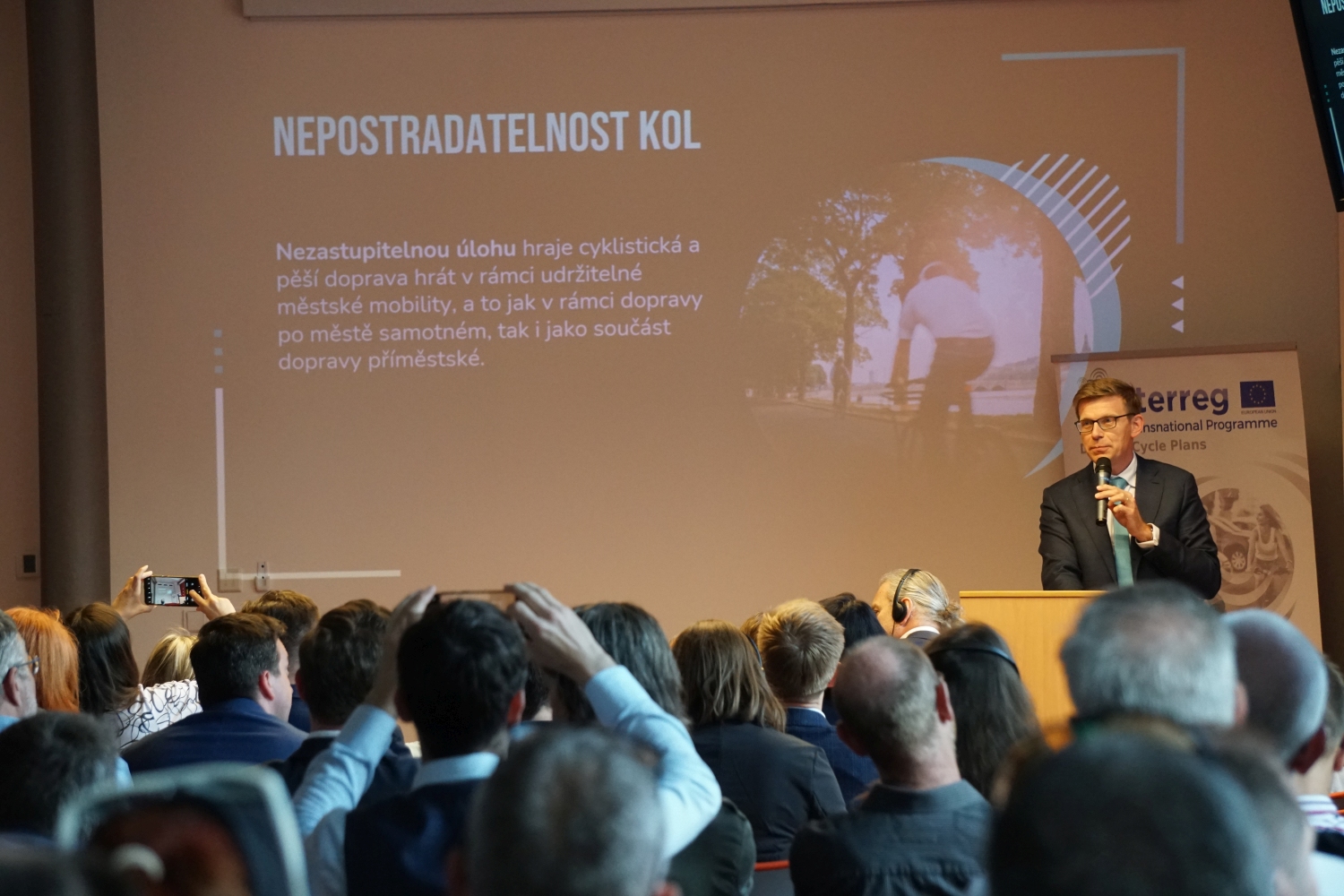 Martin Kupka, Minister of Transport of the Czech Republic. Photo: Jana Vybiralova
Martin Kupka, Minister of Transport of the Czech Republic. Photo: Jana Vybiralova
The conference also presented representatives of partner organizations that are involved in two European projects Danube Cycle Plans and SABRINA, including for example Gregor Steklačič, Slovenian national cycling coordinator from the Ministry of Infrastructure, Klaus Machata, Road Safety Expert from KFV Austria or Vladimir Djumic from Danube Competence Center in Serbia.
The event was held as the National Cycling Conference of the Czech Republic. „If we create conditions for walking or cycling everywhere, the necessary serviceability by all modes of transport will increase significantly,“ said Jaroslav Martinek, national cycling coordinator of Czechia and Managing Director of the Partnership for Urban Mobility association. This is the basic idea of the Urban and Active Mobility Concept 2021-2030 which was approved by the Czech government in January 2021. How to put this methodological material into practice was also one of the key topics of the conference.
The conference languages were Czech and English, with a simultaneous interpretations. The video of the conference is available on these links:
More information about the conference is available on the official webpage. Here you can find all the presentations, a detailed programme and a list of the speakers.
More about the Vienna Declaration and the Pan European Masterplan for Cycling Promotion
Vienna Declaration and Pan European Masterplan for Cycling Promotion objectives by 2030 with relevance for active mobility:
- increase significantly the number of cyclists in all countries in the region and thus contribute to the overall goal of doubling the number of cyclists in the whole region;
- provide sufficient and adequate space for walking and cycling to increase the overall resilience of the transport system;
- expand the infrastructure for pedestrians and cyclists in all countries of the region and improve its quality;
- develop and implement national cycling policies, support them with national cycling plans, strategies and programmes, while set national targets for the countries in the region;
- enhance significantly cyclists’ safety in each country of the region, while significantly reduce the number of fatalities and serious injuries to cyclists due to traffic accidents throughout the region;
- integrate cycling into health policies and strategies, including those dealing with non-communicable diseases and obesity;
- integrate cycling issues including cycling infrastructure into spatial, urban, regional and transport planning.
